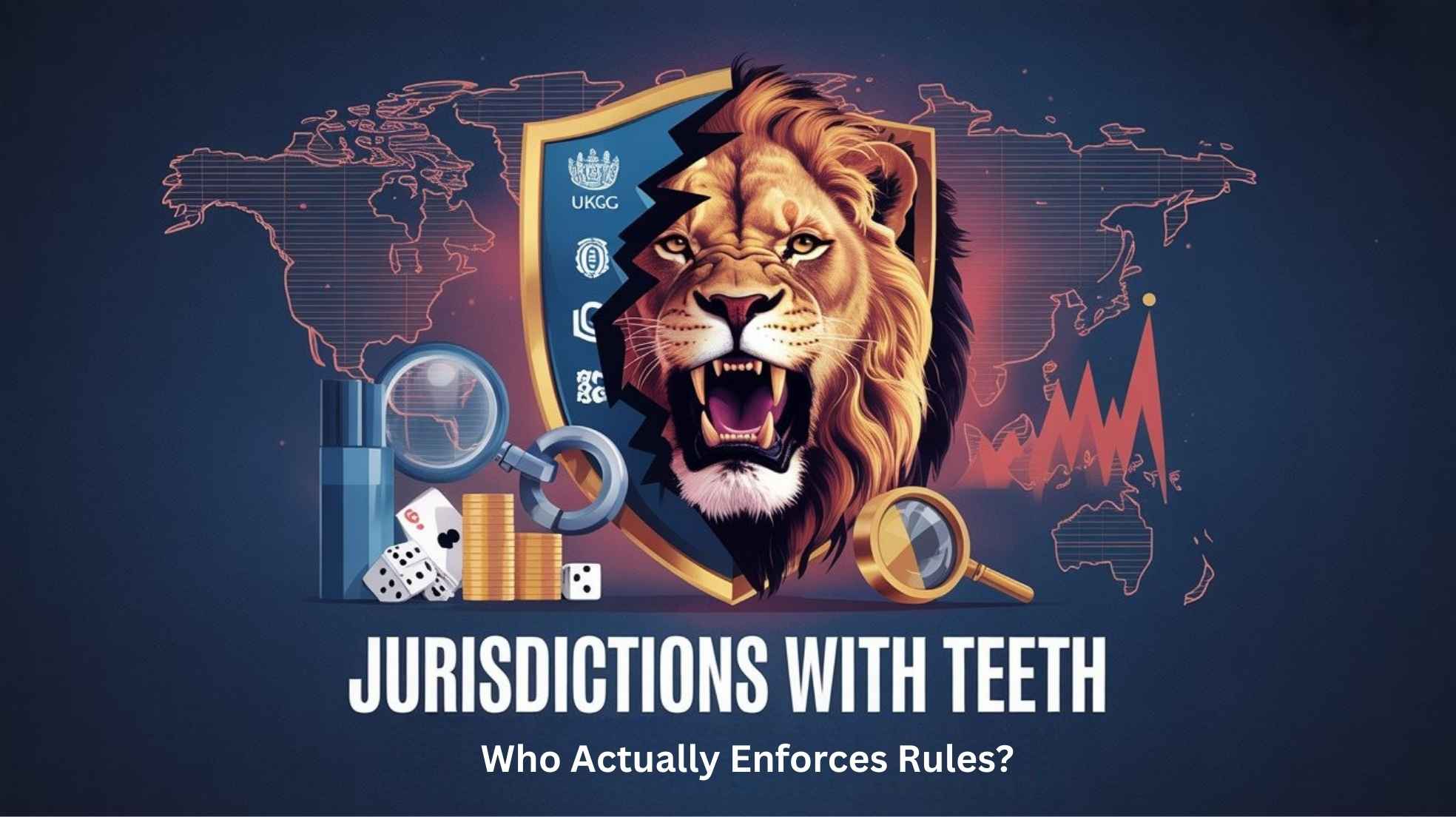The Need for Licensing in Online Gambling
In the rapidly expanding world of online gambling, licensing has become a vital component of any serious operator’s business strategy. Obtaining a license is more than just a regulatory formality—it’s a declaration that an operator complies with legal standards, prioritizes player protection, and offers fair games.
But while the benefits of being licensed are clear—building trust with players, access to larger markets, and avoiding legal issues—securing a license is not always simple or cheap. The process of becoming licensed can involve numerous fees, legal hurdles, and compliance measures that vary dramatically from one jurisdiction to the next.
For operators, whether they’re launching an online casino, sportsbook, or another type of gambling platform, the decision to apply for a license and the cost of obtaining one is an important consideration. With dozens of gambling jurisdictions across the globe, understanding the financial and legal implications of licensing is crucial for ensuring long-term success.
In this article, we’ll explore the costs and complexities of getting licensed in the world of online gambling. We’ll break down the requirements, fees, and processes involved in securing licenses from some of the most respected gambling authorities worldwide. Whether you’re a startup in the industry or an established operator looking to expand, knowing what it takes to go legit globally will help you make informed decisions about your business’s future.
1. Understanding the Licensing Process: The First Step to Legitimacy
What Does It Mean to Be Licensed?
When an online gambling operator gets licensed, it means that they have met the legal and regulatory requirements set by a recognized authority in a given jurisdiction. Licensing typically involves a thorough evaluation of an operator’s financial stability, operational processes, business practices, and adherence to responsible gambling measures.
A licensed operator is legally allowed to offer gambling services in a jurisdiction, provided they continue to comply with the authority’s rules. For players, a licensed operator offers a layer of protection, ensuring that they can trust the games, fairness, and security of their personal data and funds.
Key Considerations in the Licensing Process
- Application and Due Diligence: The licensing authority will assess the applicant’s business model, financial health, ownership structure, and operational practices.
- Fees and Costs: Licenses come with an array of costs, including application fees, annual renewal fees, and potential additional fees for specific services or compliance measures.
- Compliance Obligations: Ongoing compliance with the authority’s rules is mandatory, which includes regular reporting, audits, and updating gaming software or systems to ensure fairness.
2. Global Licensing Jurisdictions: Comparing Costs and Requirements
Different jurisdictions have varying standards and costs when it comes to gambling licenses. The choice of jurisdiction is often dictated by the operator’s target market, business model, and the level of regulatory scrutiny they are willing to comply with. Here’s a closer look at some of the most popular gambling jurisdictions and what it costs to get licensed in each.
United Kingdom (UKGC): The Gold Standard
The UK Gambling Commission (UKGC) is one of the most respected and stringent gambling regulators globally. The UKGC regulates all forms of gambling within the UK, including online casinos, sports betting, and lotteries.
- Cost Breakdown:
- Application Fees: The cost to apply for a UKGC license varies based on the type of gambling activity. For example, remote casino operators pay a higher fee compared to sports betting operators. The application fee can range from £2,640 to over £20,000, depending on the scale and scope of operations.
- Annual Fees: These range from £3,000 to £250,000, again depending on the operator’s revenue and the type of license.
- Additional Costs: There are ongoing costs for compliance, such as fees for audits, customer protection programs, and anti-money laundering (AML) measures.
- Advantages:
- A UKGC license is highly respected globally and enhances the operator’s reputation.
- The UK is a massive gambling market, offering a large player base and high revenue potential.
- Challenges:
- Strict compliance standards and high costs can be burdensome for smaller operators.
- Regular audits and reporting requirements can be resource-intensive.
Malta (MGA): A Gateway to Europe
The Malta Gaming Authority (MGA) is one of the most popular licensing jurisdictions in Europe. Malta is known for its relatively straightforward application process and offers one of the best licensing deals in terms of affordability and market access.
- Cost Breakdown:
- Application Fees: The initial application fee for an MGA license is approximately €2,330.
- License Fees: Depending on the type of gambling operations, the license fee can range from €25,000 to €40,000 per year.
- Compliance Fees: Operators must also pay fees for ongoing compliance, which can include technical audits, reporting, and anti-money laundering checks.
- Advantages:
- MGA offers access to the European Union market and its regulatory framework, which is highly respected.
- The costs are relatively lower compared to jurisdictions like the UKGC, making it attractive to smaller operators.
- Challenges:
- Malta’s regulatory requirements are still robust, and compliance can be complex, especially for new operators.
- The jurisdiction is becoming increasingly competitive, leading to a more crowded market.
Curaçao: Affordable, But With Lax Regulations
Curaçao has long been a popular jurisdiction for online gambling operators, especially for startups. The island nation offers one of the most affordable licensing options, making it an attractive option for those looking to enter the iGaming market without spending a fortune.
- Cost Breakdown:
- Application Fees: The application fee for a gambling license from Curaçao is around $1,000.
- License Fees: The cost of obtaining a license in Curaçao ranges from $20,000 to $30,000 per year.
- Additional Fees: There are costs for annual renewals, and operators must meet certain operational standards to keep their licenses active.
- Advantages:
- Low application and annual fees make Curaçao attractive for startups and smaller operators.
- The licensing process is relatively straightforward and quick, with less stringent regulations than other jurisdictions.
- Challenges:
- The major downside is the lack of strict regulations and oversight. While this may be appealing for operators looking for flexibility, it also means less protection for players, which can hurt an operator’s reputation.
- The lack of international recognition for the Curaçao license can limit market access, especially in Europe and the United States.
Gibraltar: The Tax Haven with High Standards
Gibraltar is known for being a tax-friendly jurisdiction for gambling operators, and many high-profile operators are licensed here. While the licensing costs can be higher than those in Curaçao or Malta, Gibraltar provides a strong reputation in the industry.
- Cost Breakdown:
- Application Fees: Gibraltar’s application fee typically starts at around £1,000, with the cost of the license depending on the type of operation.
- License Fees: Operators can expect to pay between £20,000 to £50,000 annually for a gambling license.
- Additional Costs: There are additional costs for compliance with anti-money laundering (AML) and responsible gambling practices.
- Advantages:
- Gibraltar’s regulatory environment is respected globally, and it offers easy access to the UK market.
- The jurisdiction is a well-established hub for online gambling, making it ideal for operators looking to scale up.
- Challenges:
- The costs can be prohibitive for smaller operators, and the requirements for compliance are more stringent than in other tax havens.
- The political uncertainty surrounding Gibraltar due to Brexit may create long-term challenges.
3. Other Key Jurisdictions: A Snapshot of Global Licensing Costs
While the UK, Malta, Curaçao, and Gibraltar are among the most well-known jurisdictions, several other regions also offer attractive licensing opportunities:
- Alderney: Known for its stability and reputation, licensing fees can range from £17,500 to £35,000 annually.
- Isle of Man: Offers a reputable licensing process with fees starting at £5,000 for an application and annual fees of £35,000.
- Kahnawake (Canada): One of the more affordable jurisdictions, with licensing fees starting around $5,000, but the regulatory environment is somewhat less rigorous than others.
4. Additional Costs Beyond Licensing: Compliance and Operational Expenses
While licensing is a significant cost, operators must also account for additional expenses to stay compliant with regulatory requirements:
- Compliance Audits: Regular audits are necessary to ensure that games are fair, operators are not involved in money laundering, and they are abiding by responsible gambling practices.
- AML and KYC Programs: Anti-money laundering (AML) and know-your-customer (KYC) regulations require operators to implement stringent procedures to verify the identity of players and prevent fraud.
- Player Protection Initiatives: Licensing bodies often require operators to offer self-exclusion options, responsible gambling tools, and support for problem gamblers.
Conclusion: Is Going Legit Worth the Cost?
For operators in the online gambling industry, licensing is a necessary investment to ensure long-term success and stability. While the costs associated with obtaining a license can be substantial, the benefits far outweigh the potential risks of operating without one.
Whether you choose to apply for a license in a jurisdiction with robust regulatory standards like the UKGC or opt for a more affordable option like Curaçao, obtaining a legitimate license will allow you to attract more players, avoid legal challenges, and build a trusted brand in the competitive iGaming market.
In the end, the cost of going legit varies by jurisdiction, but the reward is the peace of mind knowing that your business is compliant, ethical, and fully above board.











